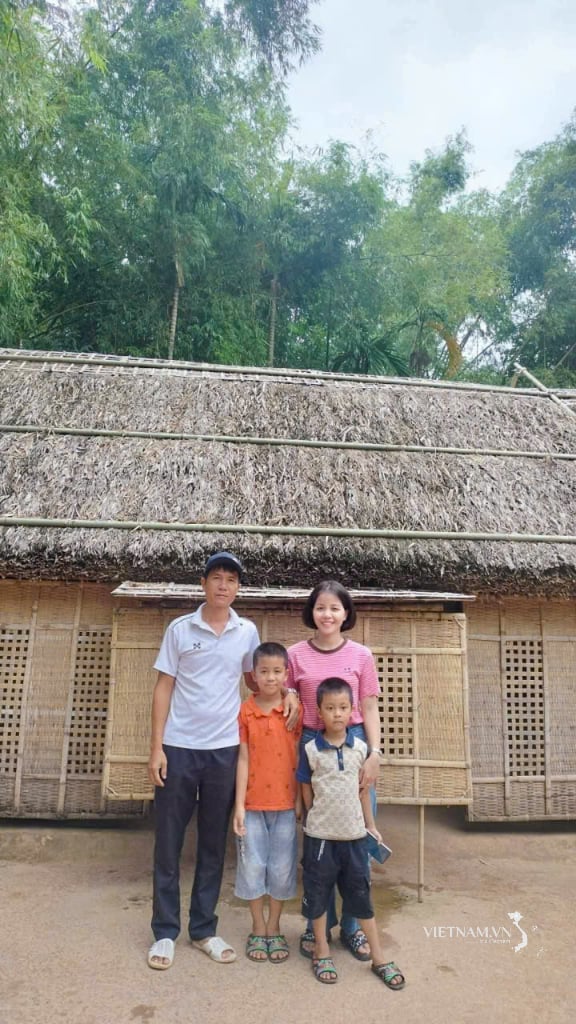On March 22, in Hanoi , the Ministry of Health coordinated with PATH to organize a conference to review malaria, parasite and insect prevention and control work in 2022; deploy the 2023 plan in the Northern region; and promote malaria elimination in Vietnam.

Illustration photo: vncdc.gov.vn
This is an activity aimed at, through communication, policy advocacy, ensuring sustainable finance for malaria elimination, preventing malaria from returning, and updating new, effective measures for malaria treatment.
According to data from the Central Institute of Malaria - Parasitology - Entomology, over the past 30 years, the National Malaria Prevention and Control Program has achieved remarkable achievements. In 1991, malaria spread and became serious throughout the country with more than one million patients, 4,646 deaths, and 144 outbreaks. By 2022, Vietnam had 455 malaria patients, 1 death, and no malaria outbreaks. 42 provinces and cities were recognized as malaria-free.
However, malaria is still complicated with more than 6.8 million people living in malaria-endemic areas, mainly concentrated in Lai Chau, Binh Phuoc and some provinces in the Central and Central Highlands regions. The reasons why malaria is still progressing in our country are due to drug-resistant malaria; border malaria, population migration; chemical-resistant mosquitoes; limited funding for malaria prevention, control and elimination...
Also in 2022, the Central Institute of Malaria - Parasitology - Entomology collected the main malaria-transmitting mosquitoes, An. minimus and An. dirus, at the survey points. An. minimus, An. aconitus, and An. maculatus mosquitoes are also sensitive to insecticides such as alpha-cypermethrin, lambda-cyhalothrin, and deltamethrin. An. sinensis and An. vagus mosquitoes are resistant to insecticides alpha-cypermethrin, lambda-cyhalothrin, and deltamethrin.
According to data from the Ministry of Health in 2022, there were over 360,000 cases of dengue fever and more than 100 deaths from dengue fever nationwide. The Central Institute of Malaria - Parasitology - Entomology has conducted surveillance of dengue-transmitting mosquitoes at 57 locations in 12 provinces, of which Ae. aegypti mosquitoes were detected in 5 provinces and Ae. albopictus mosquitoes were detected in 12 provinces. Ae. aegypti mosquitoes at most survey locations were resistant to deltamethrin and permethrin. Ae. albopictus mosquitoes at most survey locations were still sensitive to deltamethrin and permethrin. The surveillance results showed changes in the behavior of malaria-transmitting mosquitoes; malaria-transmitting mosquitoes and dengue fever mosquitoes were resistant to insecticides...
Regarding the prevention and control of parasitic diseases in Vietnam, in 2022, more than 12.8 million children aged 24 - 60 months, primary school students and women of reproductive age were dewormed. Deworming campaigns conducted by provinces were safe, achieving coverage of 95-98%. Worms and parasites are unevenly distributed, depending on the climatic conditions of different ecological regions, living habits, and unsafe eating habits. Funding from the central and local governments for the prevention and control of parasitic diseases is still very limited and has not received due attention...
In 2023, the work of preventing and controlling malaria, parasites and insects will focus on promoting policy advocacy, strengthening direction, mobilizing all levels and sectors to invest in human resources and funding to ensure sustainable malaria, parasite and insect prevention and control programs to successfully achieve the goal of eliminating malaria in Vietnam by 2030; reviewing, revising and supplementing professional guidelines for unified implementation nationwide; conducting an assessment of the National Strategy for Malaria Prevention, Control and Elimination to 2020, with a vision to 2030. In addition, the Ministry of Health will continue to promote professional activities and interventions in localities with malaria hotspots, maintaining surveillance to prevent malaria from returning in 42 provinces and cities that have been recognized as malaria-free. At the same time, the Ministry will expand coverage and improve the quality of activities to prevent and control parasites and insects; Review and enhance the capacity of staff at all levels to meet the requirements and tasks of developing policies and regimes for remuneration, attracting and retaining human resources; deploy solutions to ensure resources from domestic and international sources for program activities.
Many delegates said that it is necessary to strengthen policy advocacy to ensure funding for activities, ensure support for medical staff; strengthen research and apply new and effective technical measures in disease prevention, detection and treatment. In addition, functional units need to assess the sensitivity of mosquitoes transmitting malaria and dengue fever to some insecticides; develop a list of insect testing techniques for routes; develop mosquito distribution maps, chemical resistance maps of Anopheles and Aedes mosquitoes. For parasitic diseases, it is necessary to improve policies, organize prevention and control systems, strengthen training, mobilize resources from international organizations; develop prevention and control plans, research, a reporting system for parasitic diseases, a testing system that meets ISO standards, etc.
According to VNA
Source

























![[Photo] National Assembly Chairman attends the seminar "Building and operating an international financial center and recommendations for Vietnam"](https://vphoto.vietnam.vn/thumb/1200x675/vietnam/resource/IMAGE/2025/7/28/76393436936e457db31ec84433289f72)










































































Comment (0)